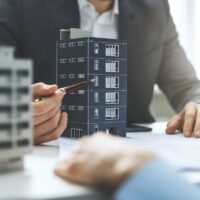Environmental Issues in Real Estate

Commercial real estate development projects have to deal with a seemingly infinite number of laws and regulations and a veritable alphabet soup of agency approvals. Some of the most expensive, time-consuming, and occasionally deal-destroying issues that arise in real estate transactions involve environmental issues. If you are undertaking a commercial real estate development project, whether it involves building a condo, an office building, a strip mall, or any other piece of commercial property, it is vital that you do your research well in advance concerning any possible environmental issues and that you jump through all of the proper environmental law hoops during the course of your development and/or transaction.
Houston real estate attorney Leigh Meineke is well-versed in handling the environmental issues associated with real estate transactions. She knows the municipal, state, and federal environmental laws and regulations that may come into play, how to conduct the proper due diligence in advance of your real estate transaction, and how to defend your entity should any government agency take issue with your transaction on environmental grounds.
Environmental Issues Common to Real Estate Transactions
Our Houston real estate attorney is prepared to help with any number of environmental issues that may arise in connection with your real estate transaction or development project. Some of the more common environmental issues that arise in commercial and residential real estate transactions include the following:
-
Land and water contamination. Real estate development often involves land contamination concerns. The contamination may originate either on the site, from the activities of the current or past owners, or off-site sources. A piece of property may, for example, have an underground storage tank (UST) that must be carefully removed before development in order to avoid a contamination event. A prior leak of toxic chemicals may not have been discovered until after the current owners took over. The liability for a site owner may vary depending on the context in which the contamination occurred, whether they were in control of the property at the time, and the nature of the location. These issues may become even more complicated if there is a source of drinking water nearby the property.
-
Mold contamination. Mold problems may arise in any building that has been poorly constructed or lacks adequate ventilation. If you are considering whether to purchase a piece of developed real estate, it is important to inspect the property for potential mold contamination. Moisture and mold can cause significant structural damage to a building, and several types of mold are toxic when inhaled over long periods. Ensure that your building is up to code when built or purchased to avoid issues concerning mold.
-
Asbestos. For years, asbestos was used as a standard insulator in pipes, boiler rooms, walls, flooring, roof shingles, and other construction materials. Asbestos issues may arise in commercial and industrial buildings as well as residential properties. Removing materials that contain asbestos, or otherwise abating asbestos problems, can be a costly and time-consuming procedure. Any real estate purchaser or developer should know in advance how the presence of asbestos offsets the value of the property, and on whom liability for such efforts will fall.
-
Preservation. Real estate development is often at odds with state and local preservation efforts. Developers must take into account the presence of wetlands, endangered species, floodplains, and even the habits of migratory birds when undergoing a transaction or development project. Developers must make sure they have all of the appropriate environmental permits, and that their plans for the land are in accordance with permissible land usage for the area. If a variance is needed, the developer will need to prepare to contest the need for the variance with local governments, environmental groups, and other interested parties.
Prepare For, Mitigate, and Respond to Any Environmental Issues
A commercial real estate attorney can provide you with full-service legal help concerning any environmental issues that may arise before, during, or after a real estate transaction. Attorney Leigh Meineke serves large corporations and small developers alike, providing services including;
-
Assessing and mitigating potential environmental risks, both legal and practical
-
Ensuring compliance with local, state, and federal environmental rules and regulations
-
Negotiating and documenting contractual risk allocation, including remediation, obtaining insurance, and proportioning future liability
-
Identifying and retaining qualified environmental engineers and consultants to conduct appropriate surveys, evaluations, and other forms of environmental due diligence
-
Obtaining environmental permits and variances required for development
If you are considering a real estate transaction, make sure that you have all of your bases covered by consulting the knowledgeable, detail-oriented, and effective real estate attorney Leigh Meineke at Stephens | Domnitz | Meineke PLLC for advice and representation.
Get Help Dealing with Environmental Issues in Your Houston Real Estate Transaction
If you’re a real estate developer or business owner in need of legal assistance concerning environmental issues that may arise in the course of a real estate transaction, contact the Houston real estate lawyer Leigh Meineke at Stephens | Domnitz | Meineke PLLC by calling 832-706-0244.


